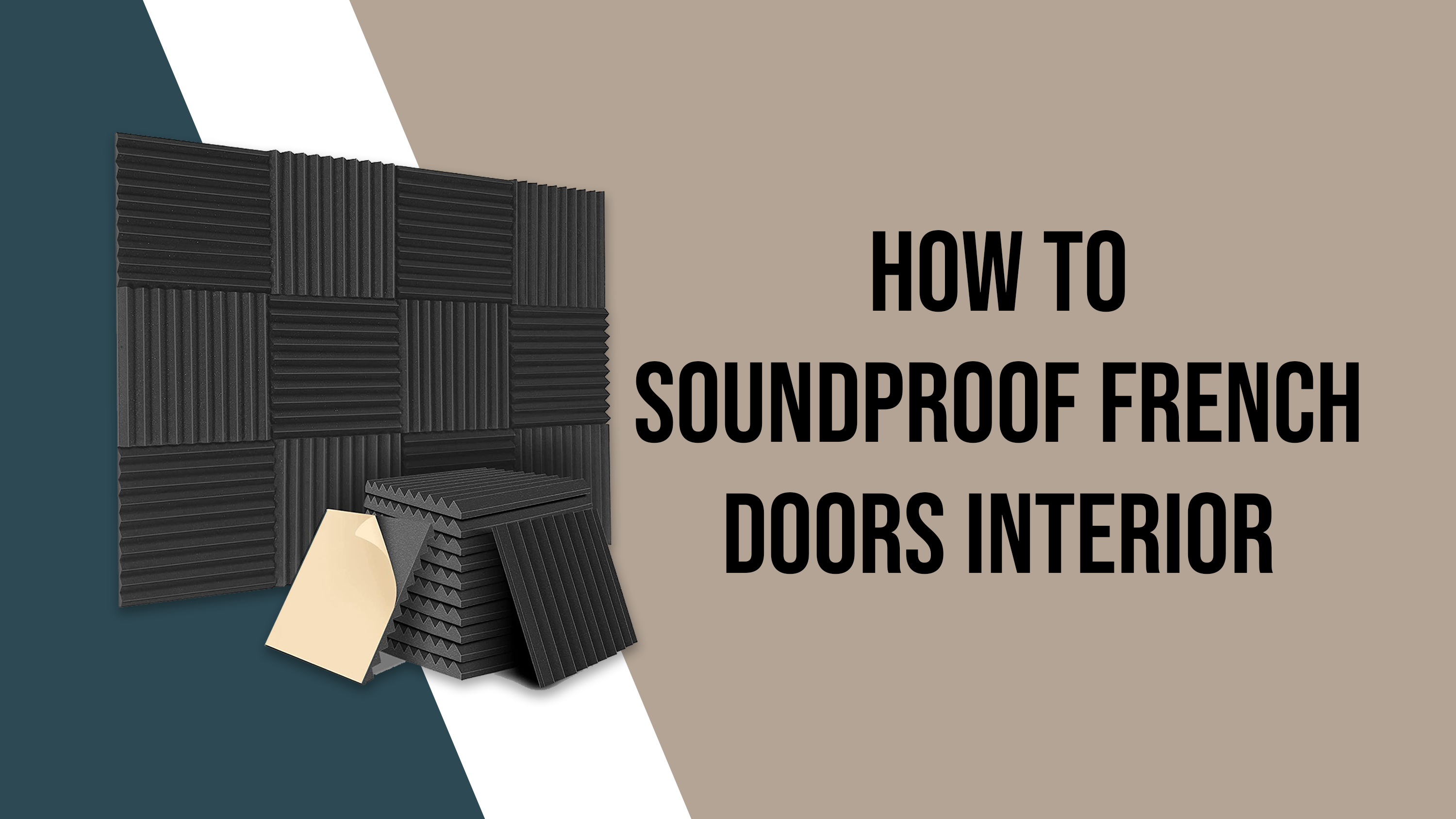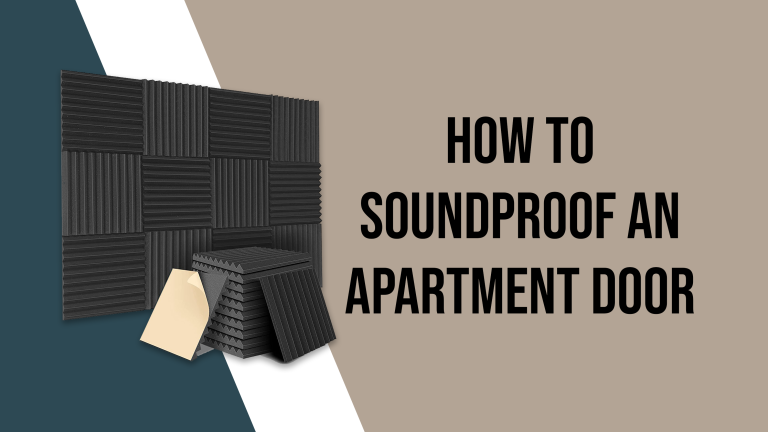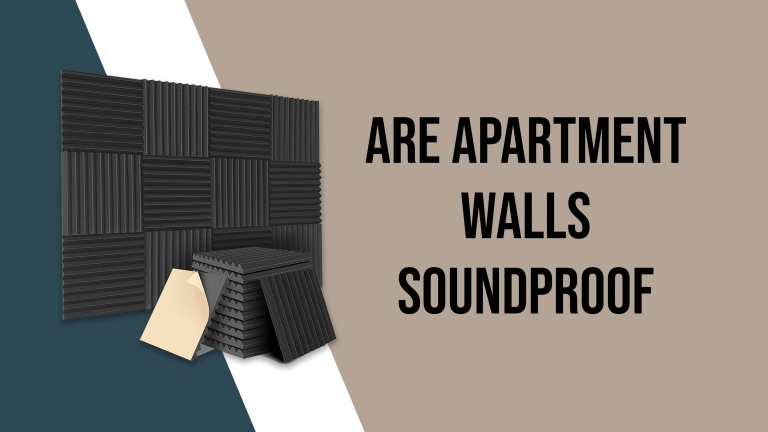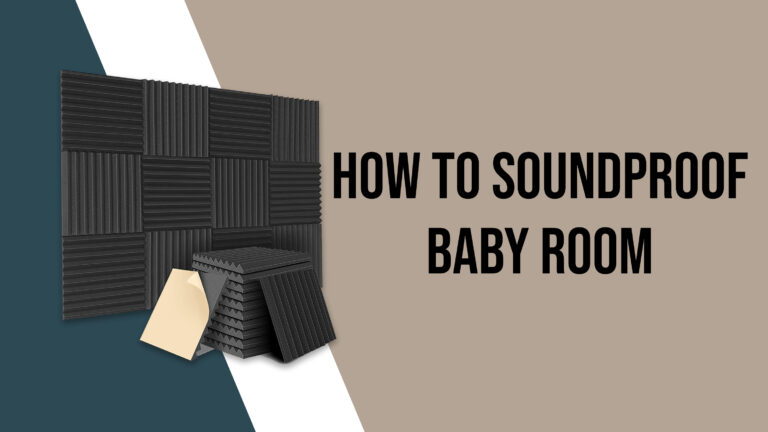How To Soundproof French Doors Interior
French doors add style and elegance to any room, but they can also let in unwanted noise. Soundproofing French doors can be a challenge, but it’s possible to achieve a significant reduction in sound transmission.
In this article, we’ll show you how to soundproof French doors interior step by step.
How To Soundproof French Doors Interior?
These materials help create a tight seal around the door, absorb sound, and block gaps and cracks. It is recommended to consult a professional to determine the best approach for your specific needs.
You often soundproof:
- Barn Door
- Hollow Door
- Closet
- Drop Ceiling
- Hotel Rooms
- Hurricane Windows
- Baby Room
- Basement
- Mobile Home
- Apartment
Materials Needed:
- Weather stripping
- Soundproof door sweep
- Acoustic panels
- Mass loaded vinyl
- Soundproof sealant
- Adhesive foam tape
- Screws
Once you have the materials needed, you can either get a professional contractor to do the work for you or follow the steps below to make the interior of French doors soundproof.
Step 1: Install Weather Stripping
Weather stripping is the first line of defense in soundproofing French doors. It helps to create a tight seal around the door, reducing the amount of noise that enters the room.
To install weather stripping, follow these steps:
- Clean the door frame and surrounding area
- Cut the weather stripping to the appropriate length
- Apply the weather stripping to the door frame, making sure it’s securely in place
Step 2: Install a Soundproof Door Sweep
A soundproof door sweep is a strip of material that fits under the door and blocks any gaps between the door and the floor.
To install a soundproof door sweep, follow these steps:
- Clean the floor under the door
- Cut the door sweep to the appropriate length
- Apply the door sweep to the bottom of the door, making sure it’s securely in place
Step 3: Install Acoustic Panels
Acoustic panels are designed to absorb sound and reduce its transmission through the walls. Installing acoustic panels on the walls near the French doors can help to reduce the amount of noise that enters the room.
To install acoustic panels, follow these steps:
- Clean the walls near the French doors
- Cut the acoustic panels to the appropriate size
- Apply the acoustic panels to the walls, making sure they’re securely in place
Step 4: Apply Mass Loaded Vinyl
Mass loaded vinyl is a dense material that is designed to block sound. By applying mass loaded vinyl to the door itself, you can further reduce the amount of noise that enters the room.
To apply mass loaded vinyl, follow these steps:
- Clean the door
- Cut the mass loaded vinyl to the appropriate size
- Apply the mass loaded vinyl to the door, making sure it’s securely in place
Step 5: Use Soundproof Sealant
Soundproof sealant is a special type of sealant that is designed to block sound. You can soundproof interior French doors by applying soundproof sealant around the edges of the door and the door frame. Doing so will further reduce the amount of noise entering the room through your French door.
To use soundproof sealant, follow these steps:
- Clean the door frame and the surrounding area
- Apply the soundproof sealant around the edges of the door and door frame, making sure it’s securely in place
Step 6: Use Adhesive Foam Tape
Adhesive foam tape is a flexible tape that can be used to fill gaps and cracks in the door and door frame. By using adhesive foam tape, you can soundproof between double doors and further reduce the amount of noise that enters the room.
To use adhesive foam tape, follow these steps:
- Clean the door frame and the surrounding area
- Apply the adhesive foam tape to any gaps or cracks in the door and door frame, making sure it’s securely in place.
Why Soundproof French Doors?
Soundproof French doors are important for several reasons:
- Firstly, they help reduce the amount of noise that enters or exits the room, creating a more peaceful and quiet environment. This is particularly useful for rooms such as bedrooms, home offices, and recording studios where sound disturbance can be disruptive.
- Secondly, soundproofing French doors can also help improve the overall acoustics of a room by reducing echo and unwanted reverberation. This can make it easier to hear and understand speech and music, and enhance the listening experience in general.
- Thirdly, soundproofing French doors can also increase privacy. By reducing the amount of noise that leaks out, you can keep your conversations, music, and other activities private, without disturbing your neighbors.
- Finally, installing the best soundproof interior French doors can also increase the value of your home by improving the soundproofing and overall quality of your living space.
What you need to know before soundproofing french doors?
Before soundproofing french doors, it is important to consider the following:
Purpose:
Determine why you want to soundproof the french doors. Are you looking to reduce noise from outside, prevent noise from escaping the room, or improve the overall acoustics of the room? Knowing your goals will help you choose the most effective soundproofing method.
Sound Reduction Needs:
Assess the level of sound reduction you need. This will determine the amount and type of soundproofing material you need to use.
Type of Door:
Identify the type of door you have. Different doors have different structures, and this will affect the approach and materials you need to use for soundproofing.
Budget:
Determine how much you are willing to spend on soundproofing. Some soundproofing methods can be costly, so it is important to consider your budget before starting the project.
Tools and Skills:
Consider if you have the tools and skills required to complete the soundproofing project. If not, it may be necessary to hire a professional.
Maintenance and Upkeep:
Think about the maintenance and upkeep required for the soundproofing method you choose. Some methods may require regular cleaning and maintenance, while others are low maintenance.
Fire and Safety Regulations:
Ensure that the soundproofing methods you choose comply with local fire and safety regulations.
By considering these factors, you can ensure that you choose the right soundproofing method for your french doors and that the process runs smoothly.
Types of Sound Issues with a Double Doors?
Double doors often present unique soundproofing challenges due to their size and construction. The following are common types of sound issues associated with double doors:
Airborne Noise:
This refers to the transfer of noise through the air, such as speech, music, and other sounds. Airborne noise can be transmitted through gaps and cracks around the door frame and through the door itself. However, a soundproof double doors interior can block airborne noise.
Structure-Borne Noise:
This type of noise is caused by vibrations that travel through solid structures, such as doors and walls. Structure-borne noise can be caused by things like footsteps, slamming doors, or heavy equipment.
Flanking Noise:
This refers to the transmission of sound through adjacent structures, such as walls and ceilings. Flanking noise can be a problem with double doors because sound can easily leak through gaps and joints in the surrounding structures.
Resonance:
Resonance occurs when a sound waves are amplified by resonating within an enclosed space. This can be a problem with double doors, as they can act as resonators and amplify sound within the room.
Low-Frequency Noise:
Low-frequency noise, such as bass from music or the hum of machinery, can be especially difficult to block. This is because low-frequency sounds have longer wavelengths and can easily pass through gaps and cracks.
By understanding these types of sound issues, you can identify which areas to focus on when soundproofing double doors and select the most effective soundproofing methods for your needs.
FAQ’s
How do you soundproof a double door?
To soundproof a double door, you can install weather stripping, a soundproof door sweep, mass loaded vinyl, use soundproof sealant, and adhesive foam tape. You can also add acoustic panels to the surrounding walls to absorb sound.
Can you get soundproof internal doors?
Yes, you can get soundproof internal doors. They are specially designed with materials and construction methods that reduce sound transmission.
How do you fix the gap at the bottom of a french door?
To fix the gap at the bottom of a french door, you can install a soundproof door sweep. A door sweep is a strip of material that fits under the door and blocks any gaps between the door and the floor.
What type of interior door is most soundproof?
The most soundproof interior doors are solid core doors with soundproof materials such as mass loaded vinyl or soundproofing sealant.
Can I soundproof french doors?
Yes, you can soundproof french doors. You can use weather stripping, a soundproof door sweep, mass loaded vinyl, soundproof sealant, and adhesive foam tape to reduce sound transmission.
Does soundproof foam work on doors?
Yes, soundproof foam can work on doors to reduce sound transmission by filling gaps and cracks.
How can I soundproof my door without foam?
You can soundproof your door without foam by using weather stripping, a soundproof door sweep, mass loaded vinyl, soundproof sealant, and adhesive tape.
How can I soundproof my room cheaply?
You can soundproof your room cheaply by using weather stripping, a soundproof door sweep, mass loaded vinyl, soundproof sealant, and adhesive tape. You can also add acoustic panels to the walls to absorb sound.
How do I make my door quieter when I close it?
To make your door quieter when you close it, you can install weather stripping, a soundproof door sweep, mass loaded vinyl, or use soundproof sealant. You can also add a door closer to control the speed and force of the door closing.
Does acoustic foam work?
Yes, acoustic foam can work to reduce sound transmission by absorbing sound waves.
What can I use to block noise from next door neighbors?
To block noise from next door neighbors, you can install weather stripping, a soundproof door sweep, mass loaded vinyl, use soundproof sealant, and adhesive tape. You can also add acoustic panels to the walls to absorb sound.
Is there a soundproof door?
Yes, there is a soundproof door. These doors are designed with materials and construction methods that reduce sound transmission.
Conclusion:
By following these steps, you can effectively soundproof your French doors interior and reduce the amount of noise that enters the room. Remember to take your time and carefully follow each step to achieve the best results. With a little effort and the right materials, you can enjoy a quieter and more peaceful environment in no time.
It’s important to note that the effectiveness of soundproofing French doors interior will depend on several factors, such as the type of doors you have, the construction of your home, and the level of soundproofing you’re trying to achieve. Some of the materials used in these steps may not be suitable for every situation, so it’s best to consult with a professional to determine the best approach for your specific needs.








